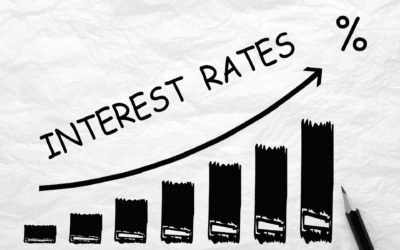It’s been a common question on every homeowner’s mind lately, as the property and mortgage market have been going through a period of turmoil. If your fixed-rate mortgage is coming to an end in the next few years, there are a couple of reasons you might feel you want to get out of it early – even if it’s just to remortgage with another lender to avoid further potential increases in rates. Where interest rates have been soaring, mortgage deals have been less favourable and with the housing market being generally uncertain, a lot of people are asking, is it worth breaking my mortgage right now?
Can You Leave A Mortgage Early?
Yes. In almost all cases, it is possible to leave a mortgage early. If you have the funds to repay the balance of your mortgage outright, then this is a fairly straightforward process, though it will often incur some extra fees. If you still have a sizeable chunk of your mortgage to go then you would need to apply for another mortgage from another lender to pay off the remaining mortgage on the property – this is known as remortgaging. And at the moment remortgaging is something a lot of homeowners are looking into. Another option is to transfer products with your existing lender, and many people have considered paying early repayment charges in order to secure at today’s rates rather than risk potentially higher rates in the future.
Why Would You Leave Your Existing Mortgage?
There are a number of reasons people look to leave their mortgage, depending on their individual circumstances. They may be going through a separation and need to take themselves off a joint mortgage. They may be selling the property during an introductory rates period.
Or, as has been the main focus lately due to rate increases, they might want to remortgage with another lender or transfer products with their existing lender to fix in on today’s rates rather than risk paying potentially even higher rates in the future.
Right now, remortgaging or transferring products may be a particularly popular option with those who have tracker mortgages, as they’re feeling the pinch of the increase in interest rates and may wish to move to a fixed rate. It’s also something a lot of people with fixed-rate mortgages that are ending soon are looking into.
The Possible Consequences of Leaving Early
On accepting your mortgage, you signed a legal contract, stating you would repay over a certain amount of time. Deciding to remortgage early means you are breaking that agreement, and there might be some consequences to doing that. They include:
Early Repayment Charges: Some mortgage contracts will have early repayment charges which you will need to pay if you want to pay the loan off early. Usually this is within a certain period i.e. the fixed rate period, and you would try and avoid paying early repayment charges for obvious reasons. However, in recent months due to the spike in rates, there have been many people who have considered paying these charges in order to avoid further increases. This is a decision that shouldn’t be taken lightly.
One of the issues with this approach is where you find the money to pay the charges. If it’s savings, was this money meant to be used for something else? Was it an emergency fund? If you’re planning on it adding this to the loan, how much interest will you pay over the term of the mortgage?
Another key issue is the fact that rates could stabilise or come down. This means that you would not only have to pay the penalties but could also pay additional interest over the term of the mortgage and with higher monthly payments if things improved.
Completion Fees: If you plan to pay off your entire mortgage balance in one go so that you own the property outright, you are entitled to do so. But the lender might apply a completion fee to close your account and remove the lender’s charge from your home. This is usually charged between £50 and £200.
Legal Fees: Remortgaging may mean a solicitor needs to get involved, particularly if you’re moving to a new lender, which means you’ll be paying for their fees on top of the early repayment charge.
Valuation Fees: These fees are sometimes payable if you’re leaving a fixed-rate mortgage to move on to another lender. This is because the new lender will want to assess the property’s value themselves, so you may need to pay these fees again.
Exactly which of these fees applies to you and how much they would cost depends on your individual mortgage agreement, so it’s worth checking with a mortgage broker before you take any action.
Is Now A Good Time To Remortgage?
With all of that in mind, how do you know if right now is a good time to break your mortgage and search for a new lender? Without knowing your exact circumstances, we can’t tell you for certain either way. All we can really say is that if you’re coming to the end of a fixed-rate mortgage agreement, then it may be in your best interest to start looking at your options sooner rather than later. There’s a high chance that your interest rate will be higher, so it’s important to prepare as early as possible so that you can manage your finances accordingly.
If you are considering paying early repayment charges to switch to another mortgage product, this deserves due care and attention. This usually involves looking at different scenarios to find out what would have to happen to interest rates in order for this approach to be beneficial.
In a majority of cases, when considering whether to pay early repayment charges, most people have decided to wait and see what happens. There are a number of things you can do such as starting to overpay now in order to adjust to higher payments while reducing your mortgage balance. You could also consider extending the term when remortgaging in order to keep the payments lower. However, this approach will involve paying more interest overall so needs to be carefully considered. The point is that there are other options that can be considered so make sure you seek advice, do some research and don’t make any rash decisions as a result of panic.
If you’re on a tracker mortgage, your decision should be based on what will happen to interest rates in the future. If you think they will rise (as they have) and keep going up then you may want to switch to a fixed-rate mortgage. If you think they will fall or stabilise, then perhaps not.
The good news is that at the time of writing, mortgage fixed rates have actually reduced slightly in recent weeks. If this continues into 2023 we can hopefully find a new normal for rates, and people can take the time they need to make truly informed decisions about their mortgages.
At Easy Street it’s our job to provide you with the best information and advice possible to help you buy, keep and own your property. If you’re worried about the mortgage market at the moment and you aren’t sure what the best options are for you, we’d be happy to help. Just get in touch with the Easy Street team to book a consultation.




